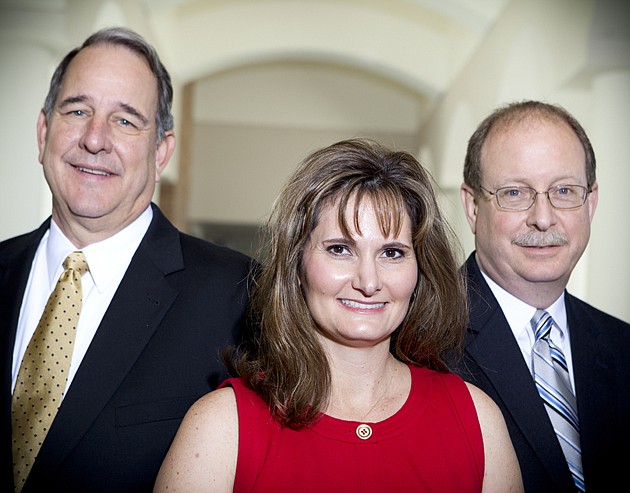- November 25, 2024
-
-
Loading

Loading

The financial crisis and following regulatory changes put wealth advisers in a dilemma.
Consumers disillusioned with big investment banks sought local boutiques. But smaller firms have a harder time meeting fiscal and technological requirements of the Securities Exchange Commission.
A trio of Tampa advisers left a historical Tampa investment institution to find a balance. Their current challenge is scrambling to notify and court their former clients while trying to get a new office up and running.
The third-story office in Harbour Island overlooking the Hillsborough River isn't exactly what Fenn Giles, Roger Martin and Lori Nadglowski were looking for when they started Wealth Advisors of Tampa Bay on April 9. An old abandoned bank in the heart of downtown Tampa was the trio's first choice, but they learned timing was key to nab a portion of the $350 million in client assets they oversaw with Florida Investment Advisors.
So when they discovered the amount of work required to make the downtown location presentable, they settled on South Tampa. They immediately went to work on foldout tables and chairs, calling and emailing their former clients. “We had to make sure they heard from us before they saw it somewhere else,” Giles says about the new venture.
Giles, former president of the Tampa Banking Co. subsidiary FIA, says the Bank of Tampa's decision to open two branches in Pinellas County was the catalyst for talks of breaking ties. “We were worried about getting enough support from the bank,” he says. He still has an account and owns stock with the bank, but felt forming an affiliation with a larger firm would help the trio focus more on client welfare and less on compliance.
To meet its needs, Wealth Advisors chose to become an independent adviser for LPL Financial, a firm that had net revenues of $3.47 billion in 2011.
The affiliation requires Wealth Advisors to pay a portion of its earnings to LPL. In return, it receives unique packaged investment options, monthly research and technology that is continually upgraded in response to rulings by the Financial Industry Regulatory Authority and the SEC. “That way we can put the client first,” says Martin, the firm's senior wealth manager.
“The rules aren't written for small firms,” says Nadglowski, the chief operating officer and compliance officer for Wealth Advisors of Tampa Bay. “So for a small firm to have to meet the same due diligence requirements of a large firm like (LPL Financial) is very difficult.”
And because the company has chosen its own name and plans to stay at roughly six employees and manage around $250 million in client assets, it keeps its boutique appeal.
As with many business decisions, cash is king. Says Giles: “The $1 billion in cash LPL is sitting on certainly helped the decision.”